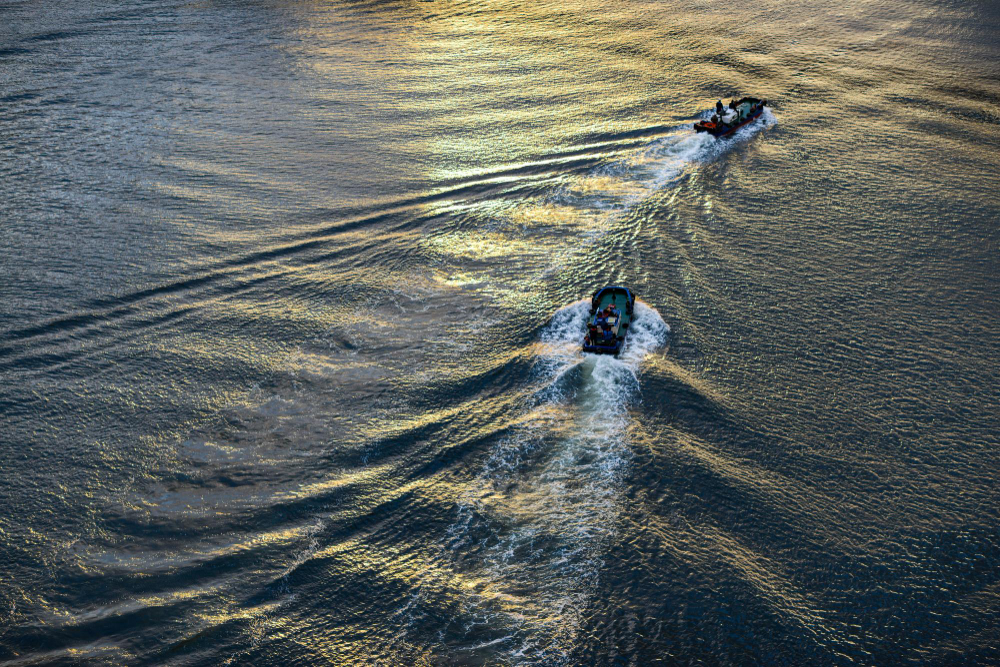Boating Safety 101: Essential Tips for Staying Safe on the Water

Boating is one of life’s greatest joys—but it comes with its risks. Whether you’re cruising on a sparkling lake or navigating coastal waters, safety should always come first. The good news? You can minimize risks with the right preparation and practices.
This blog covers essential boating safety tips every enthusiast should know, including advice for new boaters and seasoned sailors alike. By the end, you’ll learn how to protect yourself, your passengers, and those around you while enjoying your time on the water.
Looking to upgrade your boating experience or find trusted powerboat companies? Keep reading, as we have you covered!
Why Boating Safety Matters
According to the U.S. Coast Guard, the majority of boating accidents involve operator error, preventable mistakes, or inadequate preparation. More troubling, many accidents could have been avoided with a focus on basic safety protocols.
Safe boating isn’t just a "nice-to-have" idea; it’s a responsibility. Whether you're fishing, waterskiing, or cruising for leisure, every boater plays a role in creating a safe and enjoyable environment on the water.
Boating Safety Essentials You Should Never Skip
1. Wear a Life Jacket (Every Time)
This might sound basic, but it’s a step many boaters undervalue. Wearing a life jacket can be the difference between life and death in unforeseen incidents like capsizing or falling overboard.
- Choose U.S. Coast Guard-approved life jackets suitable for your boat type.
- Make sure each person on board has a properly fitted jacket, especially children.
- Keep extras on board in case you end up with more passengers than expected.
2. Know Your Navigation Rules
Collisions are one of the most common types of boating accidents. Avoid this risk by knowing marine navigation rules and applying them wherever you go.
General boating rules to follow include:
- Always give way to vessels under sail (if you are operating a motorized boat).
- Maintain a safe speed, particularly in crowded or low-visibility areas.
- Operate in marked channels and follow buoy instructions.
3. Pre-Departure Checklist
Before heading out, do a thorough safety check to ensure your boat is in working order. Here's a basic checklist:
- Fuel: Confirm your gas tank is full to avoid being stranded.
- Lights: Check your navigation lights, particularly if you plan to boat after sundown.
- Engine: Look for any warning signals or unusual vibrations during pre-departure testing.
- Signal Devices: Bring whistles, horns, or flares for communicating during emergencies.
- Emergency Kit: Include a first-aid kit, a fire extinguisher, and tools for minor repairs.
4. Never Skip Boating Education
Even seasoned boaters benefit from safety refreshers. Consider enrolling in a local boating safety course, often offered by powerboat companies, the U.S. Coast Guard, or online providers. A good course can cover topics like reading nautical charts, weather forecasting, and emergency protocol.
5. Check the Weather Forecast
Weather can change in a matter of minutes, especially if you're in coastal waters. Before heading out:
- Use apps like NOAA Marine Weather or MyRadar to monitor local conditions.
- Know the signs of incoming storm fronts, like darkening skies or rapidly changing wind speeds.
- Cancel or postpone the trip if there's a chance of severe weather.
6. Avoid Alcohol While Operating a Boat
Driving a boat while under the influence is just as dangerous as driving a car drunk. Alcohol significantly reduces reaction times and impair judgment, leading to unnecessary accidents. Follow a simple rule: the operator never drinks.
7. Practice Passenger Safety
Your passengers’ actions can affect the safety of everyone onboard. Before setting sail, brief your guests on basic boating safety, including:
- Where to sit and how to balance weight to avoid capsizing.
- The importance of keeping hands and feet inside the boat.
- Instructions on how to properly use life jackets.
8. Maintain Proper Boating Equipment
Keeping your boat in excellent condition isn’t just about performance; it’s about safety too. Regular maintenance prevents mechanical failures that could leave you stranded or in danger. Trusted powerboat companies, like Velocity Powerboats, often offer maintenance services to keep boats in optimal condition.
9. Understand Your Powerboat's Capabilities
If you’re using a powerboat, it’s essential to understand and respect its limits. Overloading your vessel or pushing it beyond its rated capacity can compromise safety.
- Follow the manufacturer’s guidelines for passenger capacity and weight limits.
- Learn how to manage speed, especially in high-traffic boating areas.
10. Be Prepared for Emergencies
Even with every precaution, emergencies happen. Prepare in advance:
- Equip your boat with a functioning radio or a waterproof mobile case to communicate with the Coast Guard.
- Share your trip itinerary with someone onshore. Include when you expect to return.
- Learn essential survival skills, including how to signal for help.
Safe Boating Is a Shared Responsibility
Boating safety isn’t just about you; it’s about everyone sharing the water, from kayakers to commercial ships. A single risky maneuver or an overlooked safety detail could impact others' lives. Thinking proactively keeps everyone out of harm's way.
Upgrade Your Experience with Trusted Powerboat Companies
Want to take your boating adventures to the next level? Having quality, reliable equipment starts with choosing the right provider. Velocity Powerboats offers top-notch powerboats that prioritize safety and performance.
Contact Velocity Powerboats today to learn more about their cutting-edge models and maintenance services. Whether you're a first-time buyer or an experienced skipper, their specialists can guide you to the ideal solution for your needs.
Together, we can make boating safer, more enjoyable, and nothing short of extraordinary.